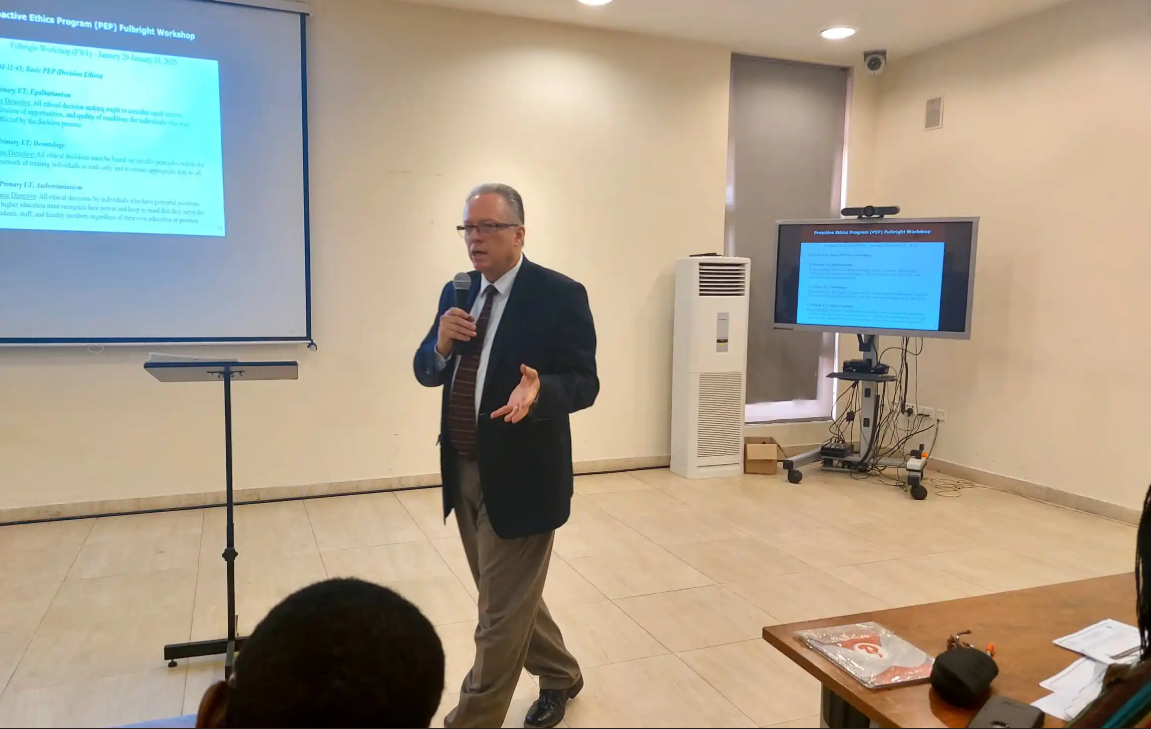Education
UNILAG to Reveal New Policy Document on Ethical use of AI

- UNILAG is developing a policy on ethical AI use in academics.
- A workshop on higher education ethics was held, led by Professor Russell Porter.
- The university aims to promote critical thinking while avoiding AI-driven plagiarism.
The University of Lagos (UNILAG) is set to unveil a policy document aimed at promoting the ethical use of Artificial Intelligence (AI) in academic activities.
The policy, which is being developed by the university, seeks to enhance critical thinking while discouraging plagiarism and academic laziness, according to the institution’s Deputy Vice-Chancellor (Academics and Research), Professor Bola Oboh.
EDITOR’s PICK
- Nigerian Governors Endorse Tax Reforms, Propose New VAT Formula
- Wizkid Crowned Africa’s Top Spotify Earner with $1 Million Monthly
- UNILAG 55th Convocation: Tinubu Highlights Education as Key to Nigeria’s Progress
Professor Oboh made the announcement during the opening of a three-day workshop on ethics in higher education, organized by the Office of International Relations, Partnerships, and Prospects (IRPP) at UNILAG.
The workshop, titled “Intensive Training Workshop on Higher Education Ethics,” was facilitated by Professor Russell Porter, a Fulbright Specialist Awardee and Deputy Ethics Officer at Texas A&M University, USA.
The deputy vice-chancellor emphasized the importance of ethics in the tertiary education sector and the necessity of policies to govern the use of AI tools in academia.
Speaking with journalists, Professor Oboh stated that while AI’s integration into academic work is inevitable, its use must enhance the intellectual capabilities of users without compromising academic standards. She stressed that AI should be used to aid critical thinking, not replace it.

“We’ve already started developing policies in this area as a university. In the next one or two months, the policy will be presented to the Senate for consideration,” she said, acknowledging that students and lecturers alike are already utilizing AI tools, both for academic purposes and for detecting plagiarism. “While AI can be useful, we must ensure that students maintain the ability to think critically and not simply rely on pre-packaged information,” she added.
Professor Porter, who has previously addressed AI ethics at UNILAG, also highlighted the global concerns surrounding the ethical use of AI and Machine Learning (ML) in research and academics. He urged institutions to carefully implement AI tools to avoid ethical and legal violations.
The workshop was held at the Arthur Mbanefo Digital Research Centre (AMDRC) and aimed to enhance the knowledge of faculty members on proactive ethics, ensuring adherence to high standards of integrity and service delivery.
Dr. Babatunde Sawyer, Research Lead at UNILAG’s Machine Intelligence Research Group, delivered a session on AI’s accountability, reliability, security, and privacy.
As part of the initiative, the workshop also provided ethical instruction to improve compliance across various sectors of the university, including administrative, financial, and academic.
The organizers stressed the importance of adopting preventive measures to address ethical challenges, tailoring the ethics framework to fit both local and global standards.
FURTHER READING
- Soldier Arrested With ‘Canadian Loud’ In Lagos
- I Was Treated Like Nothing Under PaulO’s Label – Spyro
- How To Save Your Life If You Are Bitten By A Snake
Professor Oboh urged participants to share the knowledge gained in their respective faculties, ensuring a widespread understanding of ethical principles within the institution.
The physical workshop concluded on January 31, with a virtual session set to continue for three more days.
Click HERE For our Video of The Week
Advertise or Publish a Story on EkoHot Blog:
Kindly contact us at ekohotblog@gmail.com. Breaking stories should be sent to the above email and substantiated with pictorial evidence.
Citizen journalists will receive a token as data incentive.
Call or Whatsapp: 0803 561 7233, 0703 414 5611

















